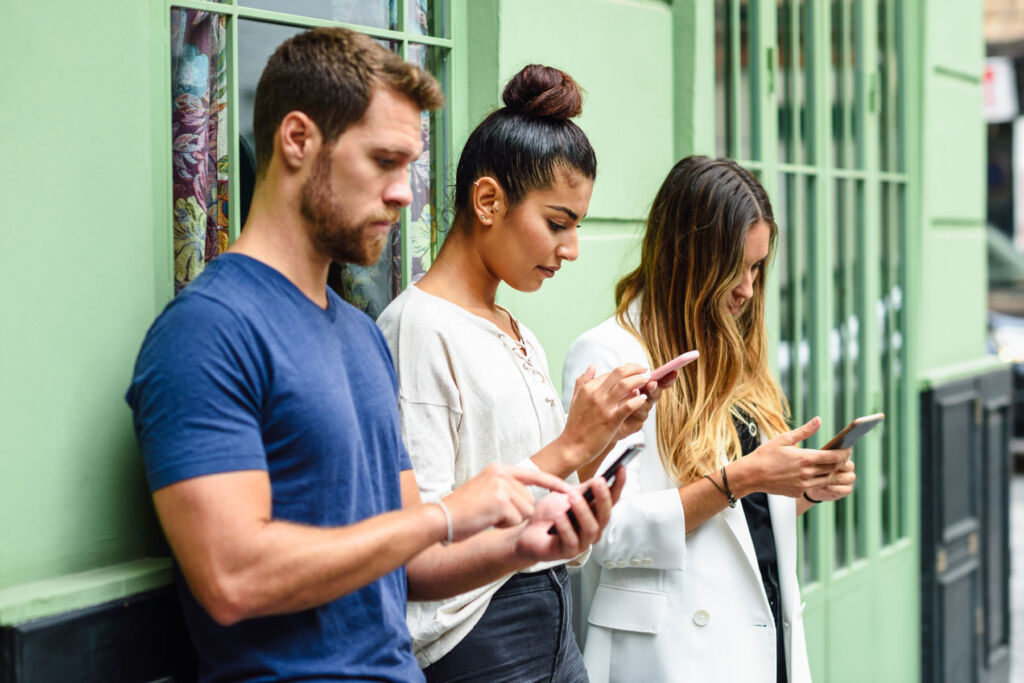
Privacy is becoming a rare commodity in today’s world; everything from CCTV cameras on the streets to your computer and mobile phone is collecting data on what you do, where you go and, worryingly, what you say. Mobile phones are one of the main culprits, eavesdropping on you via something called ultrasonic cross-device tracking. The big question is can you prevent it from happening?
The vast majority of people in the world want aspects of their lives to remain private. However, as technology has advanced to “make life simpler”, with it, one’s personal privacy has all but disappeared. Something that is perhaps more worrying than online data capture is the ability of specific devices to eavesdrop on you without your knowledge or consent, and in this article, we look at some steps you implement to make it more difficult.
The best type of company to turn to in regards to data safety is a specialist online security company, and there are few more prominent in the field than NordVPN. The company recently conducted a study and discovered that most consumers globally are pretty much in the dark regarding sonic snooping by devices.
It cannot have escaped most people’s notice that following a conversation or watching something n their television, an advertisement relating to what was seen or discussed will suddenly pop up on their phone. In the NordVPN study, it found that more than a third of people polled globally (36%) had experienced this.
In addition, the study found that almost six in ten (58%) consumers admitted they didn’t know how to prevent it, and four in ten (42%) who noticed the adverts said it made them feel tracked and followed.
Mobile phones do this by using a type of data monitoring called ultrasonic cross-device tracking, which is when apps on one’s phone listen to background noise, including personal conversations, to gather information about you. And even more worryingly, according to Adrianus Warmenhoven, a cybersecurity advisor at NordVPN, the data is then shared across other devices.
Smartphones are by far the most common place to find these tailored ads. The majority of people (75%) who recognised the phenomenon first spotted it on their handset, with half (52%) seeing it on their computer and a quarter (27%) on their tablet.
One of the world’s most valuable commercial assets is data, as it can be used by companies to generate more income. However, this type of tracking is extremely controversial as there is little transparency, and many experts have security concerns about consumer data.
A key component of cross-device tracking is audio beacons, which are embedded into ultrasound (frequencies above the level that can be heard by humans) that connect with the phone’s microphone without the user knowing. It is the reason why many mobile apps, which seemingly don’t require the use of a voice, still requests permission to access the microphone on your smartphone.

Can mobile eavesdropping be stopped?
Adrianus Warmenhoven says, “While it’s impossible to stop the ultrasonic beacons working, you can reduce the chance of your smartphone listening for them by simply restricting unnecessary permissions you have granted to the apps on your device.”
How Ultrasonic cross-device tracking works
Ultrasonic cross-device tracking is used as a method to link all the devices you own to track your behaviour and location. These ultrasonic audio beacons can be embedded in many things we interact with daily: TV shows, online videos or websites, or apps on our phones.
Imagine you are watching TV, and you see chocolate being advertised. You pick up your phone, and the same chocolate ad appears on your screen. By using ultrasounds, audio beacons can detect when your phone is nearby, and apps on your phone can listen for approximate audio beacons to track what you are doing.
How to reduce it
NordVPN cybersecurity advisor Adrianus Warmenhoven has provided us with his top tips on how yo can make it more difficult for your phone to eavesdrop:
Change app permissions. The apps on your smartphone may have some permissions that are not required. For instance, why would a photo-editing app need access to your microphone? If apps on your phone have such non-required permissions, you should revoke these permissions.
Apple now requires apps to ask your permission before tracking you or your iPhone across websites or apps owned by other companies, and you can turn this off for all apps. All changes to app permissions can usually be done in the privacy settings on your device.
Use a private browser. If you want to keep yourself from tracking, it is best to use a private browser like Tor or DuckDuckGo rather than the incognito mode in Google Chrome. These browsers do not profile you or save any of your personal data for sharing with marketers.
Use a VPN. One of the best ways to protect yourself from being tracked is by using a VPN. A VPN is a tool that encrypts every bit of information about your internet activity. It also stops IP-based tracking because it masks your IP address.
Read more lifestyle news, guides and features here.
![]()




You must be logged in to post a comment.